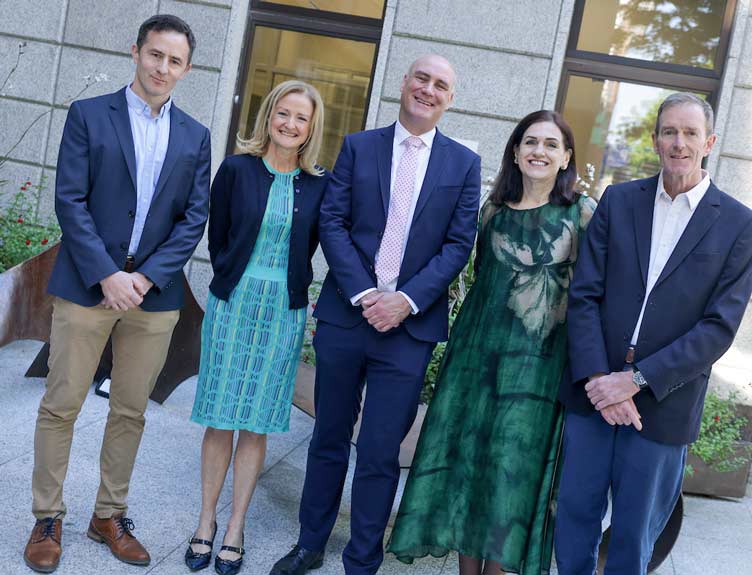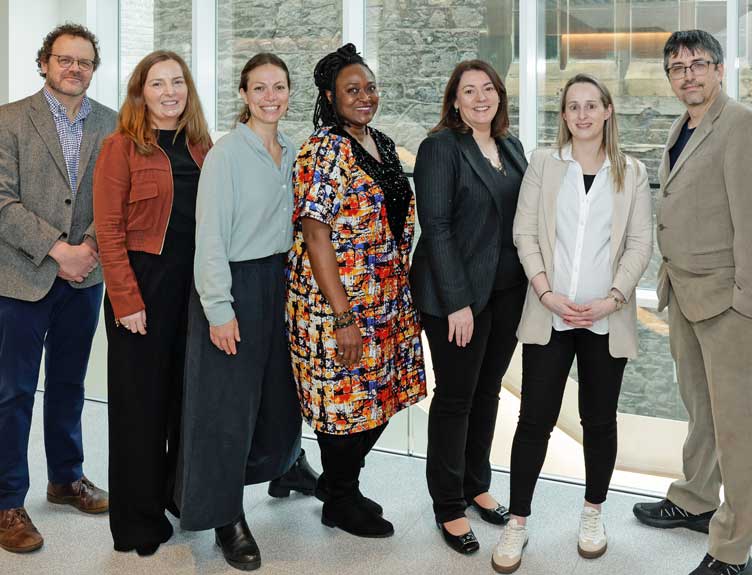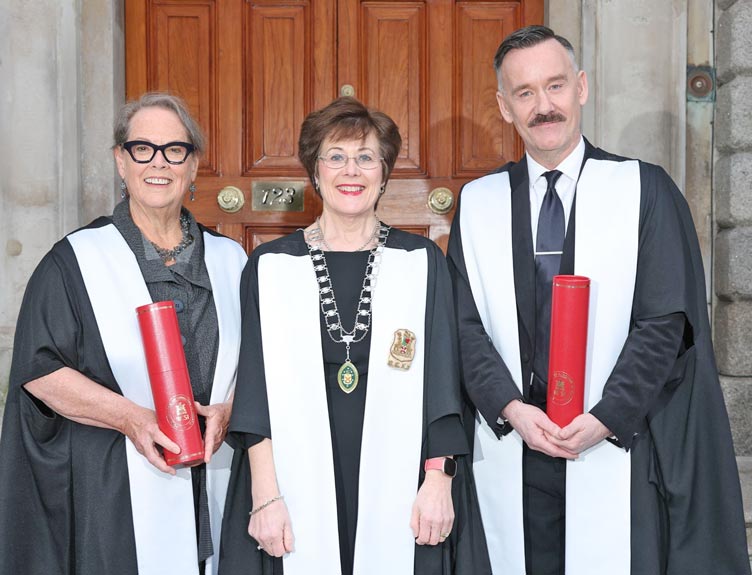Seminar at RCSI calls for greater progress in management of fragility fractures and bone health

Ireland needs to develop an integrated, coordinated, system-wide approach to bone health and the management of fragility fractures – that was the consensus reached by delegates and speakers at a recent seminar hosted by RCSI.
The seminar, on 'Fracture Prevention and Bone Health for Ireland – What Does Good Look Like?', was attended by more than 160 healthcare professionals from various disciplines and all regions of the country.
It was organised by the National Clinical Programme for Trauma and Orthopaedic Surgery based at RCSI in partnership with Amgen.
Current estimates suggest the Health Service Executive spends approximately €464 million annually on managing fractures resulting from osteoporosis, a number expected to rise with an aging population.
Ireland currently has 12 of 16 trauma-managing hospitals contributing to the national Fracture Liaison Service (FLS) database, with three annual reports published since its establishment in 2020. While FLS services have already improved identification and timely management of fragility fractures, national coverage remains uneven.
Aging population
Dr Emer Ahern, the HSE’s National Clinical and Group Lead for Older Persons, opened the seminar acknowledging the timeliness of this discussion given the country’s changing and aging population.
International experience in implementing a comprehensive bone health and FLS was presented from New Zealand by Professor Paul Mitchell and Ms Christina Gill. New Zealand, a country of similar size and demographic to Ireland, has successfully implemented a comprehensive national FLS in the past five years capturing 72% of expected fragility fractures. Professor Mitchell and Ms Gill presented their analysis which showed that that a properly resourced and functioning FLS would save approximately 57,764 acute hospital bed days over a five-year period.
Other speakers on the day included healthcare economist, Tim Jones who presented an economic evaluation model which illustrated the potential for FLS to reduce the cost of managing new fragility fractures.
Speaking at the event, Professor Kassim Javaid, an international expert in bone health management reiterated the critical need for widespread FLS coverage, emphasising that Ireland is uniquely positioned to build upon existing progress in preparation for the inevitable rise in fracture incidence which will be driven by our ageing population.
Fracture crisis
The afternoon workshop, facilitated by Helen Bevan, a global leader in transformational healthcare change, enabled all participants to discuss and consider all facets of what an integrated bone health and fragility fracture prevention service would look like for Ireland.
Mr Aaron Glynn, co-chair of the Fracture Liaison Service Database, said that he "welcomed the opportunity for participants to help progress a national position statement on bone health and secondary fracture prevention services in Ireland".
Professor Frances Dockery, consultant geriatrician and co-chair of the FLS said that this event "confirmed the fragility fracture crisis as a growing public health challenge in Ireland, with significant disparities in equity of access to service provision across the newly established health regions, particularly in the HSE Midwest and Southwest".
Delegates expressed great enthusiasm for driving forward a united plan to influence large-scale change. Mr Tom McCarthy, Joint National Clinical Lead for the National Clinical Programme for Trauma and Orthopaedic Surgery, said that "from this meeting a clear consensus and a strong commitment has emerged to forming an Irish coalition of the willing to advance a national position paper to highlight bone health and secondary fracture prevention as a healthcare priority".



